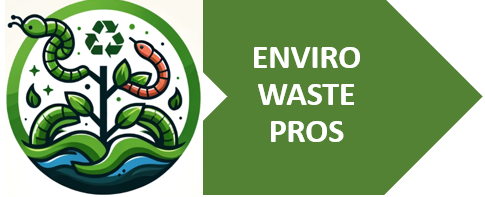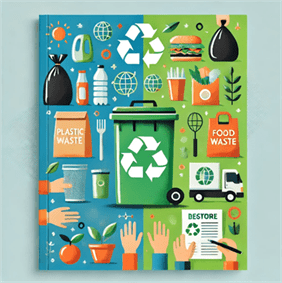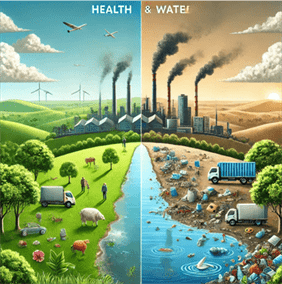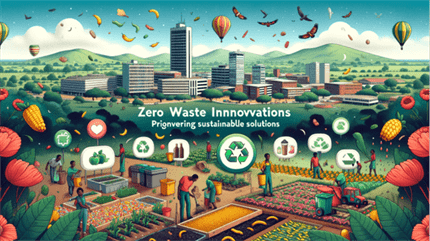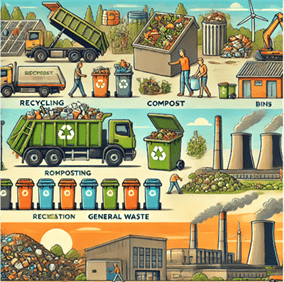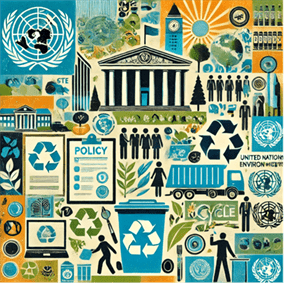Waste Management in the Context of Zimbabwe
1. Introduction
Waste management is a critical issue in Zimbabwe, impacting both urban and suburban areas. As a developing country in Southern Africa, Zimbabwe faces unique challenges and opportunities in managing its waste effectively. This article provides an overview of waste management in Zimbabwe, examining the challenges faced, strategies employed, case studies, the role of community and government, and future directions for improvement.
2. Waste Management Challenges
Urban vs. Suburban Areas
Urban areas in Zimbabwe, particularly Harare, the capital city, generate large amounts of waste due to high population density and commercial activities. The infrastructure for waste collection and disposal in these areas is often strained, leading to issues such as illegal dumping and uncollected waste. In contrast, suburban areas face challenges related to inadequate waste management services and limited access to waste disposal facilities.
Specific Issues in Harare
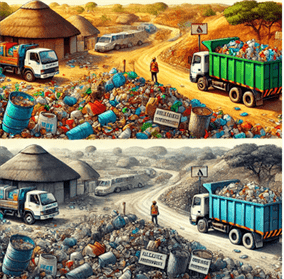
Harare, like many other urban areas, struggles with waste collection and disposal. The city generates significant municipal solid waste, including household, commercial, and industrial waste. Specific issues include:
- Inconsistent Waste Collection: Irregular waste collection schedules lead to accumulation of waste in residential and commercial areas.
- Illegal Dumping: Due to inadequate waste disposal facilities, illegal dumping is common, exacerbating pollution and health risks.
- Landfill Management: Existing landfills are often poorly managed, with limited capacity and environmental safeguards.
3. Approaches to Waste Management
Strategies Used in Zimbabwe
Zimbabwe employs various waste management strategies to address these challenges. Key strategies include:
- Public-Private Partnerships: Collaborations between the government and private sector entities to improve waste collection and disposal services.
- Community-Based Initiatives: Engaging local communities in waste management efforts, such as neighborhood clean-up campaigns and recycling programs.
- Education and Awareness: Promoting awareness about waste management practices and the importance of reducing, reusing, and recycling waste.
Comparison with Other Southern African Countries
When compared to other Southern African countries, Zimbabwe’s waste management practices show both similarities and differences. For example:
- South Africa: Has more advanced waste management infrastructure, including comprehensive recycling programs and well-managed landfills.
- Botswana: Similar challenges with waste collection in urban areas but has implemented successful community-based waste management programs.
- Zambia: Faces similar issues with waste management infrastructure but has made strides in public-private partnerships.
4. Case Studies
Successful Waste Management Projects in Zimbabwe
Several projects in Zimbabwe demonstrate successful waste management practices:
- Harare Clean-Up Campaign: A city-wide initiative involving local communities, businesses, and the government to clean up streets, parks, and public spaces. The campaign has led to improved waste collection and increased public awareness about littering.
- Chitungwiza Recycling Program: A community-based recycling program in the suburb of Chitungwiza, which collects and processes recyclable materials, providing employment opportunities and reducing waste sent to landfills.
- Bulawayo Composting Project: An organic waste composting project in Bulawayo, converting household and market waste into compost for use in urban agriculture. This project has improved waste management and supported local food production.
5. Role of Community and Government
Government Policies
The Zimbabwean government plays a crucial role in waste management through policies and regulations. Key policies include:
- Environmental Management Act: Provides the legal framework for waste management, including guidelines for waste collection, transportation, and disposal.
- National Waste Management Strategy: Outlines the government’s plan for improving waste management infrastructure and practices across the country.
Community Involvement
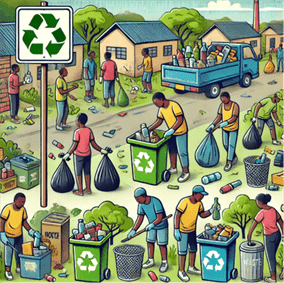
Community involvement is essential for effective waste management. Local communities participate in various initiatives, such as:
- Neighborhood Clean-Ups: Organized events where residents come together to clean their neighborhoods.
- Recycling Programs: Community-led efforts to collect and recycle waste materials.
- Educational Campaigns: Programs to raise awareness about waste management and environmental conservation.
6. Future Directions
Plans for Improving Waste Management
To address ongoing challenges and improve waste management, Zimbabwe has several plans in place:
- Infrastructure Development: Investing in modern waste collection and disposal infrastructure, including new landfills and recycling facilities.
- Policy Enhancements: Strengthening existing policies and introducing new regulations to promote sustainable waste management practices.
- Public Engagement: Increasing public participation in waste management efforts through education and community involvement.
7. Conclusion
Effective waste management is crucial for the health and sustainability of Zimbabwe’s urban and suburban areas. Despite significant challenges, various strategies and initiatives demonstrate progress in addressing waste management issues.
Continued efforts by the government, private sector, and communities are essential for improving waste management practices and ensuring a cleaner, healthier future for Zimbabwe.
The future outlook for waste management in Zimbabwe is promising, with plans for infrastructure development, policy enhancements, and increased public engagement paving the way for sustainable solutions.
Related Articles:
